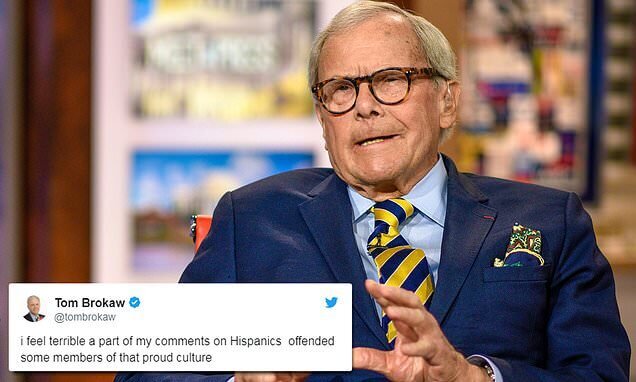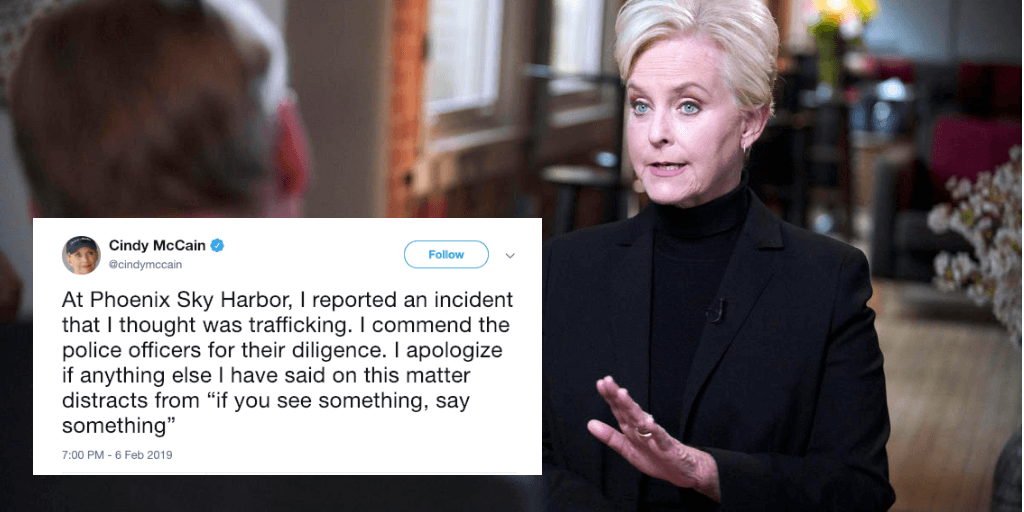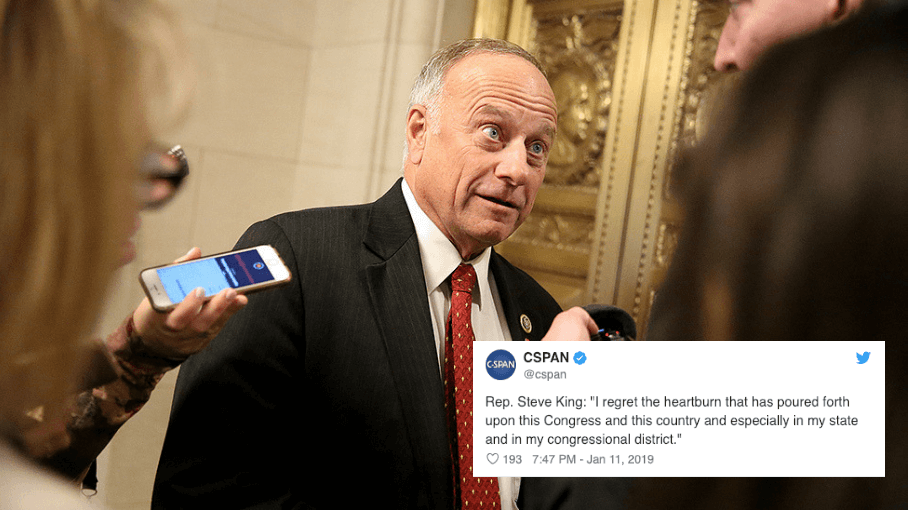How to write your next social media apology
If it seems like people have more to apologize for these days, it’s because they do.
Sorry for spying on you without your consent. Sorry for not telling you about that major hack until way later. Sorry for advertising with a racist TV anchor. Sorry for being a racist TV anchor. Sorry for interviewing a Nazi. Sorry for being a Nazi. Sorry for the blackface. And so on.
“Sorry for destabilizing our democracy and facilitating a genocide in Myanmar.” (Source: Huffington Post/YouTube)
But not surprisingly, we have not seen a well-executed public apology in a long time. This coincides with the fact that no one is really sorry about anything these days.
But while the sheer volume of wrongdoing has skyrocketed, it’s hard for me to recall the last time I heard an apology that felt truly genuine. You know, an apology that really does its job and comforts its intended audience.
“Sorry for accidentally saying that racist thing I believe out loud.” — Tom Brokaw (Source: Daily Mail)
On the contrary, there are plenty of bad apologies out there. Apologies that are so poorly delivered that they only serve to amplify the original misdeed and leave us wondering whether you understand the gravity of what you’ve done.
And if that’s the case, you may actually be better off not making an apology to begin with!
"Sorry I found a multiracial family so unusual I reported them to the cops." — Cindy McCain
PR and crisis comms firms seem to have missed the memo, but I hope you won’t: a bad apology makes things worse.
Sure, a bad apology amplifies the pain and anger you’ve caused. But it also makes it much harder for you to garner public support as you attempt to move forward from the incident. It's a net negative for your brand or business.
There's no upside to a poorly written apology. So if you find yourself caught up in a sudden social media shitstorm, don’t do what these sociopaths are doing.
"Sorry I'm a Nazi" — Congressman (!!!) Steve King
Stop, breathe and use the one formula that will help you apologize for virtually anything with guaranteed success, The Apology Formula.
The Apology Formula: How to write your public apology
The Apology Formula is the result of research by Rutgers University’s Karen Cerulo. The sociology professor studied high-profile public apologies, from rapper Chris Brown to ex-POTUS Bill Clinton and found that that less than 1/3 of them could be classified as “effective.” That is, the public considers the vast majority of apologies to be bullshit.
However, Cerulo also found that of the apologies that were accepted positively by the public, all had three things in common. And if you include these three things in your apology, chances of you securing some public goodwill will dramatically increase.
Ladies and gentlemen, The Apology Formula.
1. Identify your victim
Who got hurt? You cannot issue an apology without looking the person in the eye, so to speak. People see right through that.
Whether it’s your customers or the American people, to offer a genuine apology, you have to center your message around the victim(s) of your actions.
This means you’re going to have to dig around for some empathy (if you have any!) and drum up the courage to address the people you’ve hurt.
Don’t be like Victoria’s Secret CMO Ed Razek, who could not bring himself to address the trans community following his anti-trans comments in Vogue.
Instead, he issued a statement that could very well have been addressed to a brick wall.
"Sorry I'm so transphobic." — Ed Razek
Similarly, if you are a fashion brand that has been caught selling blackface-inspired items, it would be appropriate to address your black audience.
This stone cold, passively worded apology designed to deflect responsibility AIN'T IT.
2. Express remorse
Are you sure you’re not just feeling sorry for yourself?
When you express remorse, you do not apologize for what people thought. You apologize for what you did, without offering context or qualifiers to help you shift the blame away from you.
To complete this step, you must be genuinely sorry for the effects your actions had on your victim. This is not the time to say things like:
❌"I’m sorry if you were offended…”
❌"My comments came across as insensitive..”
❌"I didn’t think that I was doing any of that because my position allowed me not to think about it.”
❌"My tweet portal is whack”
"Sorry I can't help being such a creep." — Louis C.K. (Source: Quartz)
Do not be like Rosanne and blame your Ambien. Do not be like Elon Musk and try explaining that you were just very mad at the time. Do not be like Louis C.K. and do whatever he was trying to do here.
"Sorry I can't help being such a creep." — Louis C.K. (Source: Quartz)
The “why” isn’t important right now. It only distracts from your apology.
If this is the direction you’re heading in, unplug your modem immediately!
Your apology is going to backfire. Remember, the goal of an apology is to focus on those who you’ve hurt, not elaborate about yourself.
Instead, be like Felicity Huffman's apology. It's straight and to the point.
3. Make restitution
Hoo boy. This last one is going to be tough for those of you who are the Governor of Virginia.
You must be prepared to rectify the situation in a meaningful and relevant way. No getting around this one. For your public apology to be valid and accepted, you must make appropriate amends.
For example, if you’re the Governor of Virginia and you’ve been caught wearing blackface in medical school, you must resign immediately. It may seem that pivoting your entire agenda to focus on addressing racial inequality and reading up on the case for reparations might be a good way to do it.
But actually, the best course of action is to accept that taxpayers should not be paying you to learn about the shameful legacy of American slavery for the first time. Your best bet here would be to disappear from public life and quietly figure this one out on your own time.
How do you make restitution when you’re a brand?
A rare, standout apology comes from Slack, which issued a public apology in December 2018 for suddenly banning users who had accessed Slack from countries on the U.S. sanctions list, including Iran and Syria. The ban came out of nowhere and locked unsuspecting customers out of their accounts. It was real bad.
It was also an honest mistake by a company that prides itself on its customer experience. But as they explained, they messed up in their efforts to comply with the law.
In an ideal world, Slack would have restored access to all users, no matter where they are in the world. But that option was not available them, as it would put them in violation of U.S. trade law.
We're sorry to have disappointed you. We did not block any user based on their nationality or ethnicity, and we could have been much clearer on this. We've addressed it further in our blog here, if you'd like to read more: https://t.co/RRgJ9d1Fvs
— Slack (@SlackHQ) December 23, 2018
So what they did instead was accept full responsibility and then offer a few concrete ways they would avoid making this mistake in the future.
You can’t turn the clock back on a mistake you’ve already made and you can’t turn your back on U.S. federal laws. If there’s only so much you can do, then make it a priority to explain what happened and offer a detailed explanation of why it won’t happen again.
And why not throw in some free stuff while you’re at it? That can take the edge off.
For best results: Act fast & finish strong
Want to dramatically improve your chances of delivering a successful apology? There are two other factors that can help you really nail your apology, according to Dr.Cerulo.
Don’t wait around. The longer you wait to respond to a growing social media maelstrom, the less people are going to believe you. Act fast, unless you’re in a legal situation where you have been advised not to say anything.
Start with the victim and end with your remorse. “What you say first and what you say last goes a long way in whether or not people forgive you,” says Dr.Cerulo. Why? Because first impressions and parting words tend to stick with us a lot longer than what comes in the middle.
That's it! I obviously hope you never get caught up in a social media crisis, but if you do, start here.
This post was inspired by Freakonomics episode, "How to Optimize an Apology." It's an interesting episode, I recommend checking it out!






